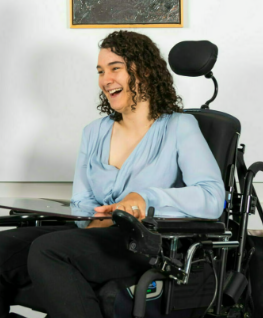How Inclusive Practices Benefits Everyone in the Classroom
Written by Renee Paarman, Disability Inclusion Coordinator, Scope
Inclusive Practices in the Classroom
The Australian Bureau of Statistics reports that over 90% of children with disabilities attend mainstream schools across the country. This statistic initially surprised me, even though I was part of that very group during my time as a student.
If most students with disabilities are in mainstream education, why aren’t new graduates receiving more training on inclusive practices? On average, newly qualified teachers only complete one unit of disability training during their undergraduate studies, which leaves students like me to navigate the challenges of disability largely on our own. Despite one in ten children of school age having a disability, many accommodations are still made only after a formal diagnosis, often leaving the burden on students to advocate for their needs. This can sometimes make it feel like we are the ones teaching others about our disability, rather than receiving an education ourselves.
Further complicating this issue, nearly 15% of students with disabilities report that their support needs are not being met. This emphasizes the importance of educating both students and school communities on what inclusive practices really look like. This is reflected in the Nationally Consistent Collection of Data on School Students with Disability (NCCD), which ensures students with disabilities receive the necessary educational adjustments to enable equitable access to education. The NCCD promotes awareness and confidence throughout the school experience, helping all students participate alongside their peers.
When accommodations are only made in response to a diagnosis, it results in missed opportunities for proactive support. This is particularly important in light of the Royal Commission into Violence, Abuse, Neglect, and Exploitation of People with Disability, which made several recommendations to improve the future of education for both students and teachers. It is crucial that inclusive practices are embedded into every classroom, regardless of who may be in attendance.
When people first encountered me, they often had low expectations of what I could achieve. Whether it was new teachers, fellow students, or administrators, I was frequently in the position of proving them wrong. From being assumed to be better suited for special education before even starting school, to classmates viewing my disability as my only defining characteristic, or teachers hesitating to let me pursue advanced subjects at a younger age — these barriers were not the result of my disability, but rather the ignorance and low expectations others held.
Disability can be a difficult topic for some to address, and it often doesn't receive enough focus in school curriculums. This lack of preparation contradicts the principles outlined in the Disability Discrimination Act (1992) and the Disability Standards for Education (2005), which ensure that all students receive high-quality education in a safe and empowering environment with necessary adjustments in place.
For any student, school can be challenging, but for students with disabilities, the absence of sufficient support only adds to the struggle. Once teachers and students got to know me and understood me, their expectations changed. Assumptions were replaced by a focus on raising expectations and ensuring that my educational journey was a shared experience. I was encouraged to participate in extracurricular activities, held to the same standards as my peers, and supported in completing high school. A stark contrast to 66% of people aged 20 and over with disability had not completed Year 12, in comparison to 34% without disability.
The support I received from teachers and peers built my confidence and ultimately inspired me to pursue a career in education. Today, I teach students and organizations about communication, disability, and inclusion.
However, my journey could have been very different if those around me had been inclusive from the start. True inclusion should begin in the classroom, as it is here that students can learn the value of understanding, supporting, and celebrating the diversity of others.
Scope are a Classroom of the Future Workshop Sponsor at the National Education Summit Melbourne. Meet them on 28 - 29 August 2025 at the Melbourne Convention & Exhibition Centre. Find out more and register for the Classroom of the Future here.


